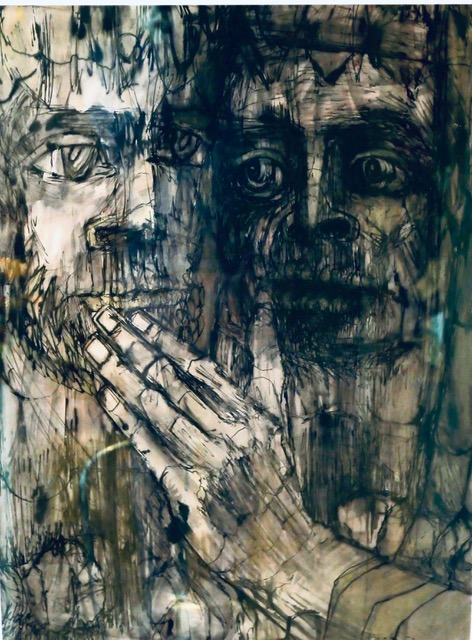This is a repeating event12 September 2022 6:00 pm
Shakespeare's Macbeth
Event Details
Mixed media drawing by Elizabeth Frink, 1952 “This supernatural solicitingCannot be
Event Details

“This supernatural soliciting
Cannot be ill, cannot be good: if ill,
Why hath it given me earnest of success,
Commencing in a truth? I am thane of Cawdor:
If good, why do I yield to that suggestion
Whose horrid image doth unfix my hair
And make my seated heart knock at my ribs,
Against the use of nature? Present fears
Are less than horrible imaginings:
My thought, whose murder yet is but fantastical,
Shakes so my single state of man that function
Is smother’d in surmise, and nothing is
But what is not.”Macbeth
Macbeth is believed to have been written in 1605, two years after King James VI of Scotland – the son of Mary Queen of Scots – became James I of England, succeeding the childless Elizabeth I and creating a personal union of the two kingdoms.
The presence of the saintly King Duncan and the character of Banquo – thought to have been a forebear of James – all indicate that this was a play designed to impress the new monarch, and it launched Shakespeare’s newly-renamed company of players, The King’s Men.
James himself was an author: amongst his published works, Daemonologie (1597) examined contemporary necromancy and the historical relationships between the various methods of divination derived from ancient black magic. Daemonologie is believed to be one of the main sources used by Shakespeare, who attributed many quotes and rituals found within the book directly to the Weird Sisters. For the play’s Scottish themes and settings, he also drew heavily on descriptions in the book of the North Berwick Witch Trials in 1590, which James had attended.
And so, as the Shakespearean scholar Emma Smith puts it, “Our first introduction to the imaginative world of the play is one in which supernatural agents hold some kind of sway.”
But how much sway? Are Macbeth and Lady Macbeth puppets of fate or are the Weird Sisters mere fantasy representations of their own desires? Both of the Macbeths speak their thoughts and feelings aloud allowing the audience to travel with them through the play. Over four meetings we will read and discuss some of the most important and intriguing speeches in this extraordinary play that continues to resonate in our own century.
You do not have to know the play already to participate in this study, but some familiarity would be helpful and a number of film adaptations are available to view online.
STUDY DETAILS
- Four-meeting virtual (via Zoom) study facilitated by Jane Wymark
- Monday evenings, 6.00-8.00 pm (UK time), 5, 12, 19, 26 September 2022
- £120, including opening notes and resources
Organizer
Time
(Monday) 6:00 pm - 8:00 pm(GMT+01:00)
Location
VIRTUAL
